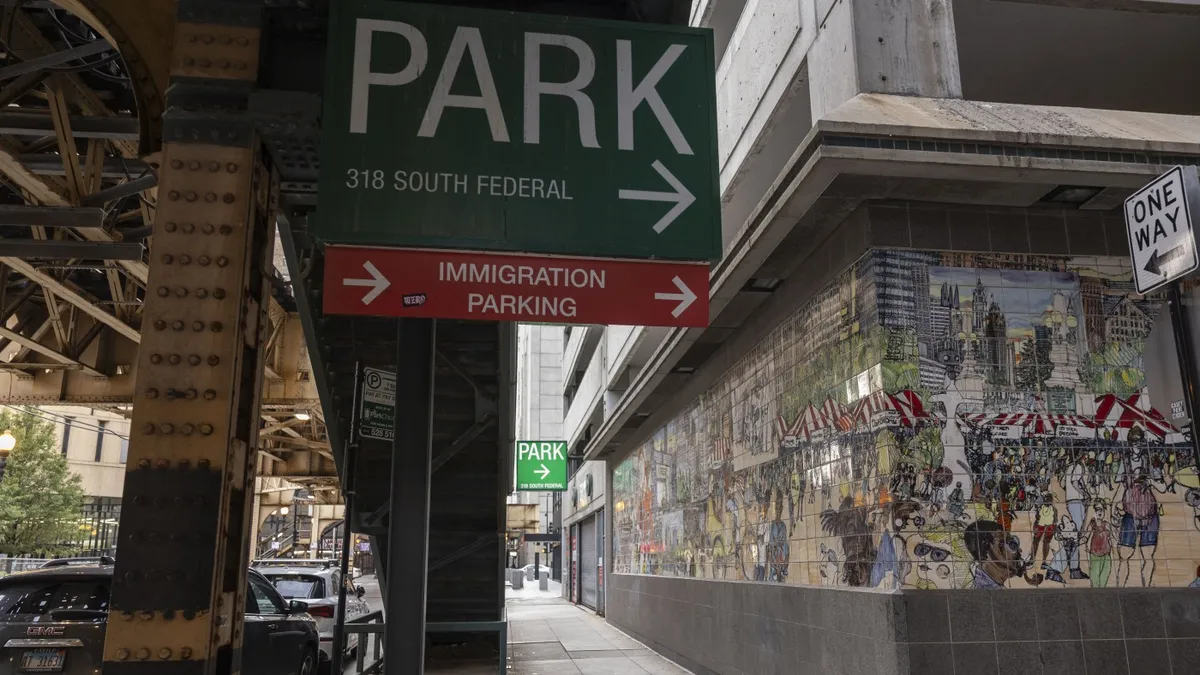
President Trump is systematically undermining the right to due process within the U.S. immigration court system, according to immigration lawyers and former judges. This approach is part of an initiative to expedite deportations. During his initial months in office, the Trump administration has implemented various measures to remove protections from deportation, such as canceling grants that funded legal representation for children, terminating the employment of numerous immigration judges, and relocating individuals to distant facilities, including prisons beyond U.S. jurisdiction.
The recent wave of policy changes and rhetoric indicates a concerted effort to simplify the removal process for certain migrants. In a statement to reporters in the Oval Office, Trump emphasized the need for judicial cooperation, asserting, "We have thousands of people that are ready to go out and you can't have a trial for all of these people." Experts warn that these actions are diluting the limited due process rights that immigrants in the U.S. currently possess, potentially setting a precedent that could affect lawful permanent residents and U.S. citizens as well.
At the heart of this issue lies a fundamental principle: the right to present one’s case before an impartial judge. Individuals involved in immigration proceedings do not have the right to legal counsel, which significantly diminishes their chances of success in court. Although they may be entitled to their day in court, the immigration court system is already fraught with challenges. The success rate of asylum claims varies widely among immigration judges, as reported by the Transactional Records Access Clearinghouse, and many face barriers to accessing legal services.
The case of Kilmar Abrego Garcia, who was mistakenly sent to a mega prison in El Salvador, underscores the potential neglect of due process within the current administration. Trump's administration has publicly questioned the feasibility of providing due process for the thousands of individuals targeted for arrest and deportation. He stated, "I’m doing what I was elected to do, remove criminals from our Country, but the Courts don’t seem to want me to do that." This sentiment has been echoed by key figures within the administration, who portray the judicial process as a hindrance to rapid deportation efforts.
Legal experts often reference the Fifth Amendment of the U.S. Constitution, which guarantees that no individual shall be deprived of life, liberty, or property without due process of law. The Fourteenth Amendment further extends these protections to state actions. Advocates for immigrants argue that dismantling due process at any level adversely affects everyone involved in the system, including U.S. citizens. Muzaffar Chishti of the Migration Policy Institute points out that the administration is capitalizing on the unpopularity of unauthorized immigrants to justify the erosion of due process rights.
The immigration court system operates under the Department of Justice, which presents a unique dynamic as the judges and courtrooms are part of the executive branch. The Executive Office for Immigration Review (EOIR) was established in 1983 to separate immigration judges from the previous Immigration and Naturalization Service, which faced criticism for its close ties to enforcement actions. As Ashley Tabaddor, a former immigration judge, notes, the immigration court process provides a crucial, neutral setting for individuals to present their cases, often in circumstances where their lives are at stake.
Funding for nonprofit organizations that offer legal support to vulnerable populations, including children facing deportation, has been drastically reduced under Trump's administration. Many organizations relied on federal grants, which are now dwindling, resulting in an overwhelming number of cases they cannot manage. Aimee Korolev, deputy director of one such organization, highlighted the ethical challenges attorneys face when unable to afford legal representation for their clients. Furthermore, the administration has directed disciplinary actions against immigration lawyers and law firms accused of misconduct, further stifling access to legal counsel.
The Department of Homeland Security (DHS) maintains that it follows the Constitution and reserves the right to revoke visas for individuals who commit crimes. However, reports indicate that U.S. citizens have been mistakenly arrested during immigration enforcement operations, raising concerns about the adequacy of due process protections. A 2021 Government Accountability Office report highlighted that citizens have encountered immigration officers in ways that could lead to wrongful arrests and deportations.
The administration's strategy also includes utilizing expedited removal processes, which allow for immediate deportations without court hearings. Trump invoked the Alien Enemies Act of 1798 to accelerate this process for specific individuals, including gang members, albeit with limited due process protections. Legal challenges to these actions are ongoing, with some cases already blocked by the Supreme Court. The swift changes in immigration policy within a short timeframe have overwhelmed the legal system, creating a backlog of cases and complicating the representation efforts of both private attorneys and nonprofits.
There is evidence that the DHS is actively encouraging individuals to self-deport, as seen in Texas and Chicago, where signs warning of potential consequences for failing to do so have been posted in immigration court waiting rooms. McLaughlin from the DHS confirmed that the administration's message is clear: individuals should take advantage of opportunities to leave voluntarily. However, critics argue that leaving immigrants without legal counsel and diminishing due process increases the likelihood of errors in deportation proceedings, which can have life-altering consequences.
In conclusion, the current landscape of immigration courts under the Trump administration reveals significant challenges to the due process rights of individuals facing deportation. As the situation evolves, the implications for lawful permanent residents and U.S. citizens remain a pressing concern for advocates and legal experts alike.